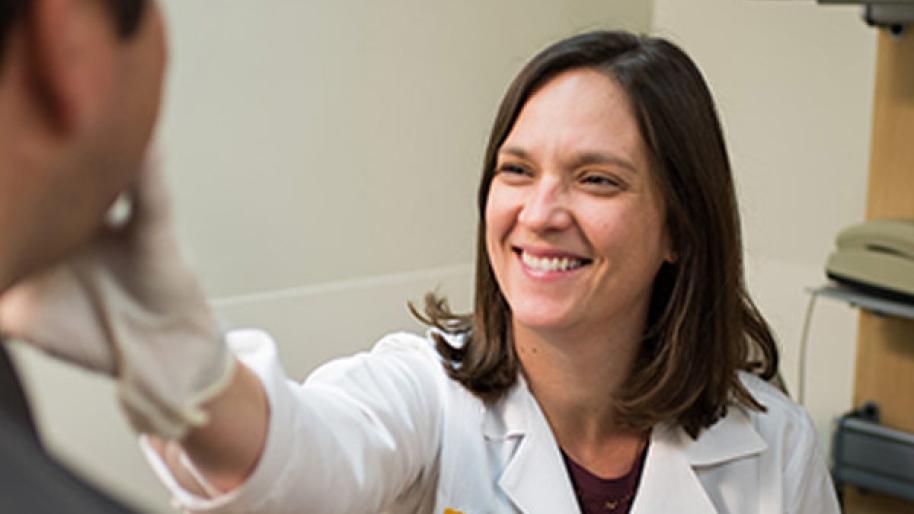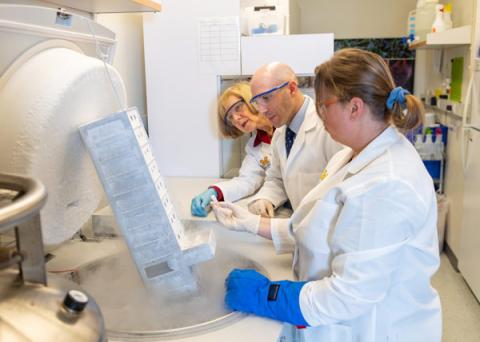How Is ALS Diagnosed?
Diagnosing Amyotrophic Lateral Sclerosis (ALS) can be difficult because there is no single test or procedure to confirm the disease. Moreover, since many neurologic diseases cause similar symptoms, appropriate tests must be conducted to exclude the possibility of other conditions first.
Diagnosing ALS may involve:
- Electrodiagnostic tests (EMG/NCS): Electomyography (EMG) and nerve conduction study (NCS) evaluates muscle and nerve functions. Specific abnormalities in the NCS and EMG may suggest, for example, that the individual has a form of peripheral neuropathy (damage to peripheral nerves) or myopathy (muscle disease) rather than ALS.
- Magnetic resonance imaging (MRI): A noninvasive procedure that uses a magnetic field and radio waves to take detailed images of the brain and spinal cord.
- Blood and urine studies
- Muscle biopsy
How Is ALS Treated?
Although there is no known cure for ALS, treatment may help relieve symptoms and improve the quality of life. Treatments may include:
Medications
We at Michigan Medicine prescribe medications that are approved for ALS including Riluzole and Edaravone.
- Riluzole: Clinical trials with ALS patients showed that Riluzole prolongs survival by several months, mainly in those with difficulty swallowing. The drug also extends the time before an individual needs ventilation support.
- Edaravone: The medicine works by relieving the effects of oxidative stress, which may be related to the death of motor neurons (nerve cells) in people with ALS. Keeping motor neurons healthy may help to preserve muscle function.
- Relyvrio
- Tofersen
Physicians can also prescribe medications to help reduce fatigue, ease muscle cramps, and reduce excess saliva and phlegm. Drugs also are available to help patients with pain, depression, sleep disturbances, and constipation.
Therapies
- Physical and occupational therapy: Physical therapy and special equipment can enhance an individual’s independence and safety throughout the course of ALS. Gentle, low-impact aerobic exercise such as walking, swimming, and stationary bicycling can strengthen unaffected muscles, improve cardiovascular health, and help patients fight fatigue and depression.
- Speech therapy: As ALS progresses, speech therapists can help people develop ways for responding to yes-or-no questions with their eyes or by other nonverbal means and can recommend aids such as speech synthesizers and computer-based communication systems. These methods and devices help people communicate when they can no longer speak or produce vocal sounds.
- Breathing devices: When the muscles that assist in breathing weaken, use of nocturnal ventilatory assistance may be used to aid breathing during sleep. These devices may be used full-time as the disease reaches more advanced stage.
- Feeding tube: When individuals can no longer get enough nourishment from eating, doctors may advise inserting a feeding tube into the stomach. The use of a feeding tube also reduces the risk of choking and pneumonia that can result from inhaling liquids into the lungs.



